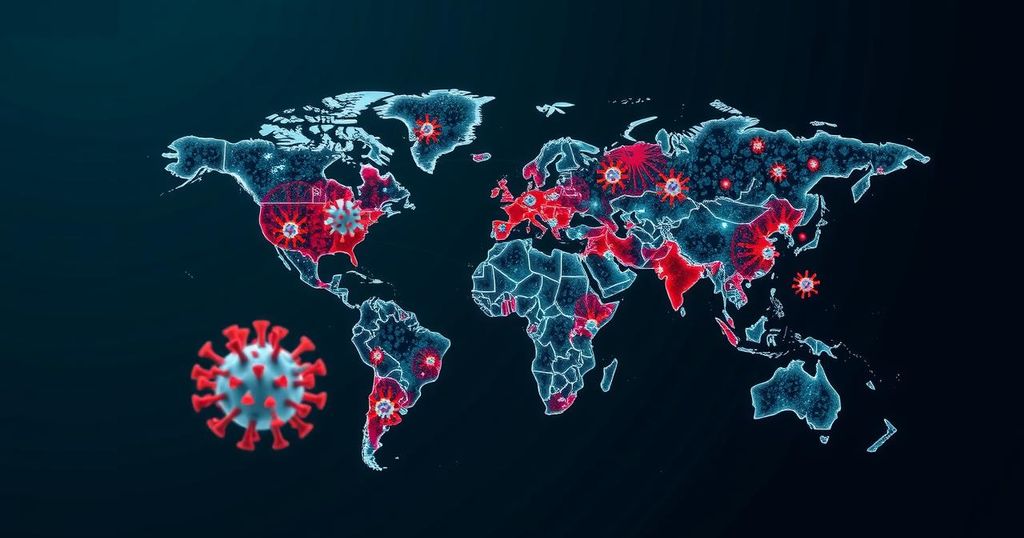Assessing Global Preparedness for Pandemic Threats: A Critical Overview

The article explores the current global health challenges, including inadequate healthcare access affecting 4.5 billion people, the ongoing mpox outbreak, and cholera crisis in Sudan. Dr. Ahmed Ogwell assesses the moderate risk level of global health, emphasizing the importance of international cooperation and lessons learned from COVID-19 in preparing for future pandemics. The discussion also highlights the impacts of geopolitical conflicts, climate change, and insufficient healthcare investments.
The global health landscape remains precarious, as currently, an estimated 4.5 billion individuals lack adequate access to essential healthcare services, according to the World Health Organization (WHO). The ongoing public health emergencies, including the mpox outbreak that has claimed over 200 lives and the rising cholera cases in Sudan affecting nearly 15,000 people, highlight the vulnerabilities in healthcare systems worldwide. Additionally, the emergence of new COVID-19 variants continues to add strain to already taxed health services. Dr. Ahmed Ogwell, vice president of global health strategy at the United Nations Foundation, indicates a moderate risk level for global health, emphasizing the need for heightened surveillance and cohesive global cooperation to tackle these challenges. Despite the lessons learned from the COVID-19 pandemic, Ogwell notes that many preventive measures have been neglected, raising concerns about the world’s preparedness for potential future pandemics. The urgency observed during the COVID-19 vaccine rollout seems to have diminished, as slow responses to current health threats such as mpox and dengue fever suggest a lack of lessons implemented from prior experiences. Conflict and humanitarian crises exacerbate health risks, creating environments conducive to the proliferation of infectious diseases and drug-resistant pathogens. Climate change further complicates this landscape, as it introduces new challenges, such as prolonged flooding and exposure to previously isolated pathogens. Inadequate government investment in healthcare infrastructure compounds these issues, resulting in an inequitable healthcare landscape where essential services are often beyond the reach of vulnerable populations. To mitigate these risks, Dr. Ogwell calls for international solidarity and cooperation in addressing health crises, while also reinforcing the detrimental impact of insufficient healthcare funding and the commercialization of health services on global health outcomes.
The discourse surrounding pandemic readiness is increasingly relevant in light of recent health crises, including the COVID-19 pandemic, the mpox outbreak, and the cholera epidemic in Sudan. The World Health Organization has identified substantial gaps in healthcare access, particularly affecting billions of people globally. This lack of access to essential services poses significant risks for managing current and future outbreaks. Additionally, the multifaceted challenges posed by antimicrobial resistance, geopolitical tensions, and climate change necessitate a global response to bolster healthcare infrastructures and preparedness strategies.
The findings from Dr. Ogwell’s discussions underscore critical areas for improvement in global health preparedness. As the world grapples with various health threats, coordinated international efforts and increased investment in healthcare are paramount. Future public health strategies must prioritize the lessons learned from previous pandemics to bolster defenses against emerging health crises, ensuring equitable access to healthcare for all populations.
Original Source: www.aljazeera.com





